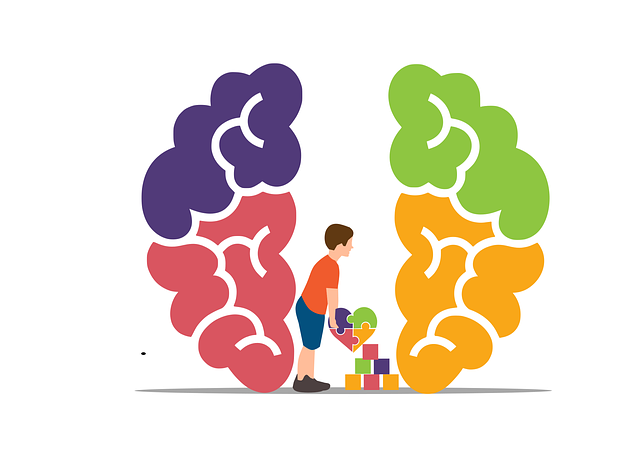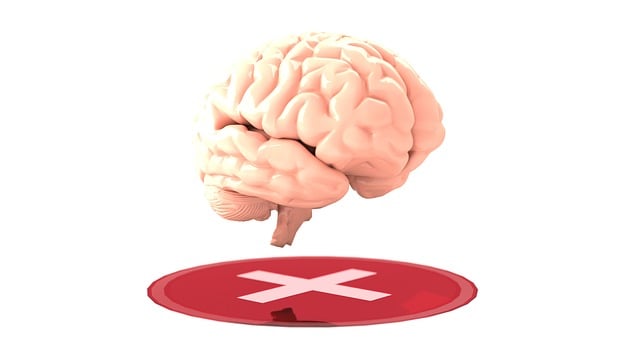Depression in children and adolescents is a critical issue requiring early intervention. Superior Play Therapy offers a unique approach, using play to facilitate emotional expression, process trauma, and develop coping skills. Combining this therapy with mental wellness coaching programs that educate about symptoms and implement risk management plans ensures timely support. Lifestyle changes, creative outlets, and mindfulness practices further enhance resilience and mood management. Evidence-based therapies like Superior Play Therapy and CBT, coupled with community resources, provide comprehensive solutions for depression recovery and prevention.
Depression is a prevalent yet profound mental health challenge, but proactive strategies can prevent its onset. This comprehensive guide explores various techniques to safeguard your mental well-being, from understanding the nuances of depression and recognizing early signs to effective therapies like Superior Play Therapy. We delve into lifestyle modifications, building resilience, and seeking professional support, offering practical tools for a healthier, happier mind.
- Understanding Depression: Recognizing Signs and Symptoms
- The Role of Play Therapy in Preventing Depression
- Lifestyle Changes for a Healthier Mindset
- Building Resilience: Coping Strategies for Daily Life
- Seeking Support: Professional Help and Community Resources
Understanding Depression: Recognizing Signs and Symptoms

Depression is a common yet serious mental health condition that can significantly impact an individual’s daily life and overall well-being. Recognizing the signs and symptoms early on is crucial for effective prevention and treatment. Play therapy, as a specialized approach, offers a unique and beneficial method to understand and address depression in children and adolescents. By utilizing superior play therapy techniques, mental health professionals can help clients express their emotions, process traumatic experiences, and develop healthier coping mechanisms.
Mental health awareness plays a pivotal role in preventing depression. Individuals should be educated about the various symptoms, such as persistent sadness, loss of interest, changes in appetite or sleep patterns, fatigue, and difficulty concentrating. Early recognition allows for timely intervention and support. For mental wellness coaching programs development, professionals can implement risk management planning to identify at-risk individuals and provide appropriate resources and guidance. This proactive approach ensures that those struggling with depression receive the necessary assistance before it worsens.
The Role of Play Therapy in Preventing Depression

Play Therapy has emerged as a powerful tool in the arsenal against depression, particularly for children and adolescents. This therapeutic approach leverages the natural tendency of kids to play as a means of self-expression and communication. Through Superior Play Therapy, trained therapists can help individuals process emotions, resolve internal conflicts, and develop essential coping skills. By engaging in imaginative play, clients can explore their feelings, enhance their problem-solving abilities, and build resilience.
The benefits extend beyond the therapy room. Conflict Resolution Techniques taught during play therapy sessions equip young people with valuable tools to navigate interpersonal challenges, fostering healthier relationships and improving social interactions. Additionally, activities focused on Confidence Boosting help individuals challenge negative self-talk and beliefs, promoting a more positive self-image and improved mood management skills.
Lifestyle Changes for a Healthier Mindset

Depression prevention strategies often begin with significant lifestyle changes aimed at cultivating a healthier mindset. Engaging in regular physical activity, maintaining a balanced diet, and prioritizing adequate sleep are foundational elements that can significantly impact mental health. These daily habits not only promote overall well-being but also serve as a form of self-care, empowering individuals to better manage stress and emotional challenges.
Incorporating creative outlets like art therapy or music into one’s routine can further enhance coping skills development and social skills training. Moreover, practices such as mindfulness meditation and superior play therapy can foster self-esteem improvement by encouraging self-reflection and nurturing a positive sense of self. By adopting these lifestyle shifts, individuals can better navigate life’s difficulties and build resilience against depressive episodes.
Building Resilience: Coping Strategies for Daily Life

Building resilience is a powerful tool in the prevention of depression and fostering mental wellness. Play therapy techniques offer an innovative approach to help individuals, especially children and adolescents, develop coping strategies for daily life challenges. Through play, individuals can express their emotions, process traumatic experiences, and build healthy ways of dealing with stress. This therapeutic method encourages exploration and creative problem-solving, allowing people to cultivate emotional strength and adaptability.
Integrating mental wellness practices such as journaling, exercise, and positive thinking guidance into one’s routine can significantly enhance resilience. Regular journaling provides a safe space for individuals to reflect on their thoughts and emotions, fostering self-awareness and personal growth. Exercise releases endorphins, boosting mood and reducing symptoms of depression. Mental health education programs designed with a focus on building emotional intelligence can equip individuals with the skills to navigate life’s challenges more effectively, ultimately preventing depressive episodes.
Seeking Support: Professional Help and Community Resources

When dealing with depression, seeking support is a vital step towards recovery. One of the most effective ways to get help is through professional therapy. Trained therapists utilize various techniques such as superior play therapy, cognitive behavioral therapy (CBT), and other evidence-based practices tailored to individual needs. These professionals provide a safe space to explore emotions, thoughts, and behaviors, helping individuals develop coping strategies and enhance their mental wellness.
In addition to individual therapy, community resources offer valuable support networks. Local support groups facilitate connections with others facing similar challenges, fostering a sense of belonging and understanding. Many communities also host Mental Wellness Podcast Series Productions, providing accessible platforms for learning about depression, its causes, and effective conflict resolution techniques and stress reduction methods. These resources collectively contribute to an environment conducive to preventing and managing depression.
Depression prevention is a multifaceted approach, from recognizing early signs to implementing lifestyle changes and seeking professional support. Understanding depression and its symptoms is the first step towards recovery. Incorporating superior play therapy techniques can be an effective way to address underlying issues, especially for children and young adults. Making positive lifestyle adjustments, such as regular exercise and mindfulness practices, can also significantly improve mental health. Building resilience through coping strategies enables individuals to navigate daily challenges more effectively. Remember, seeking help from professionals and utilizing community resources is a sign of strength, offering valuable support in managing and preventing depression.














